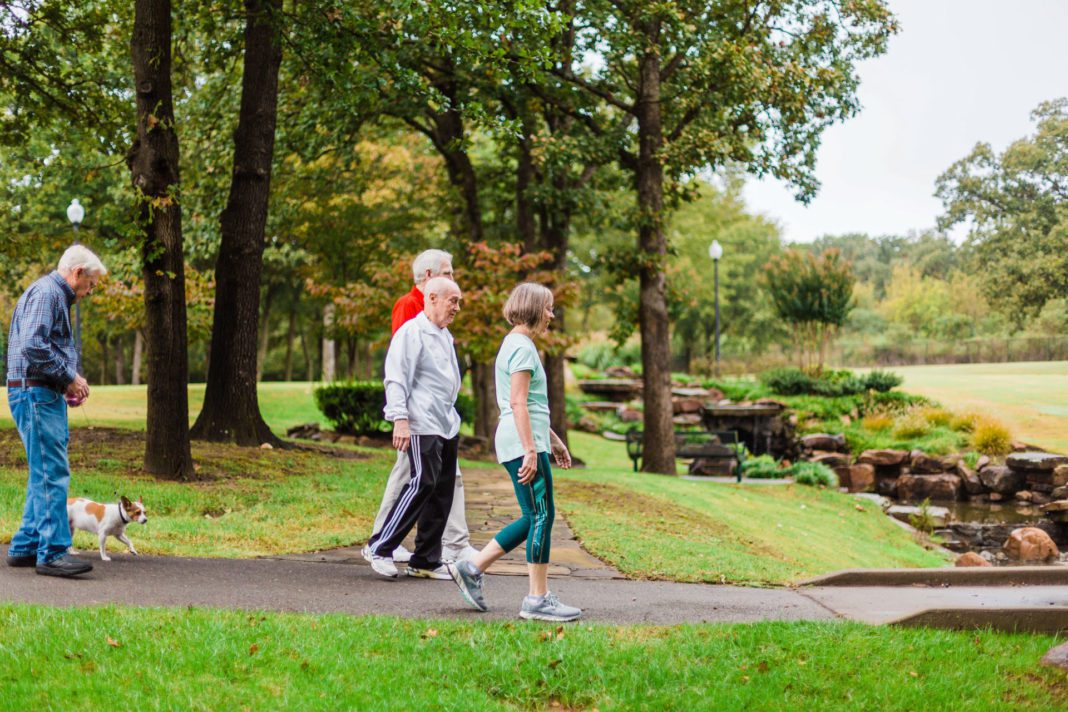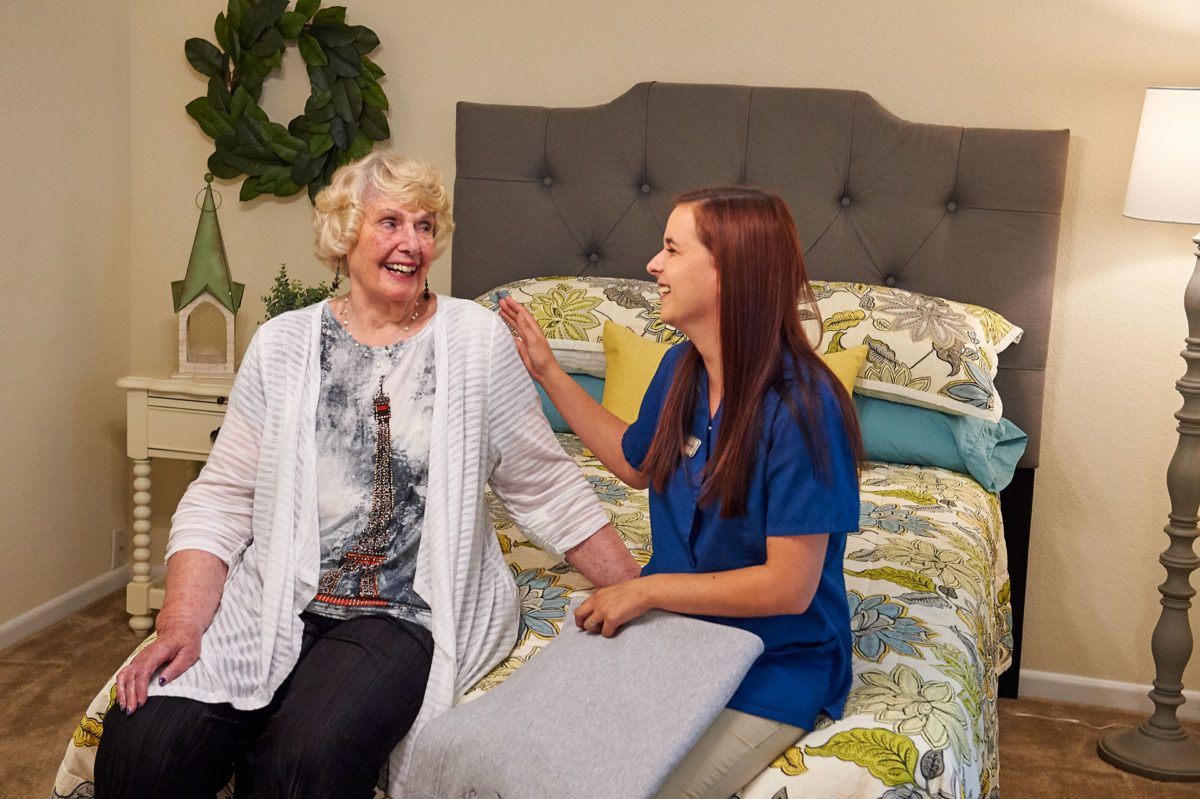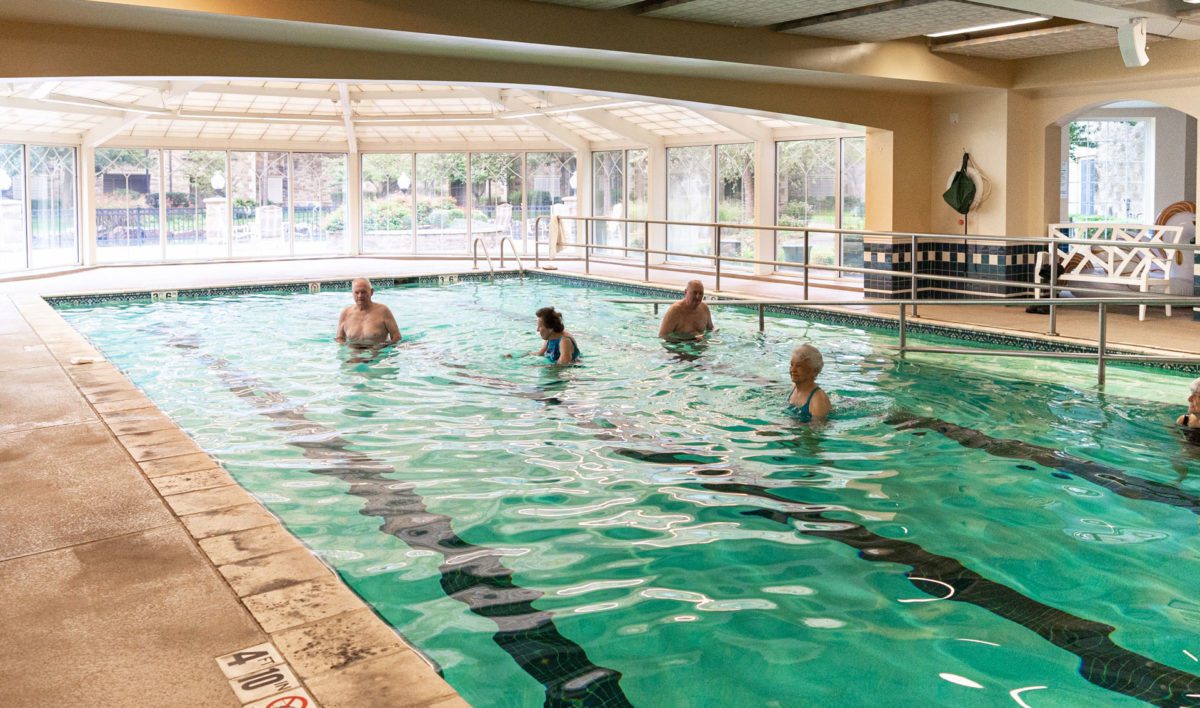Many changes come with age. Some are wonderful, like wisdom and more confidence in choices. Some changes are less pleasant. But where a person calls home and the services around them can be a smooth and welcomed transition.
Finances
One of the first concerns that often comes to mind when choosing a community for a senior is finances. Will this option be affordable?
“Everybody has different financial goals, so we offer options that allow residents to select which plan is going to be best for them,” says Cari Bashaw, director of sales for Covenant Living at Inverness. “We want to make sure that this is going to be a good financial fit for them long-term as they decide what they want their next chapter to look like. They know that they are going to be taken care of and they know that this is a plan that provides for a secure future.”
Bashaw recommends that someone sit down with a representative from the community they are interested in to have a conversation. There are many options available.
“Our mission is to ‘unite and serve’ and our promise is to ‘do for each other with love,’” says Dionicia McCallum Kelley, digital marketing director at Senior Star. “With those [principals] in mind, we are transparent about costs, so that the individual or family member considering a move is able to determine what costs are appropriate for them.”
Senior Star also reminds that rates are different depending upon which community they are evaluating and the level of care needed.
Other Considerations
Finances are not the only consideration when looking at communities for those 55 and older.
Bashaw recommends examining the culture and lifestyle.
“Do they like swimming, art classes, social hour, nature trails, book clubs, woodworking?” she asks. “The right community will feel like home.”
Amenities are also important, but consider the individual carefully when evaluating. Some people may be more social while others like more alone time. Bashaw and McCallum Kelley both recommend visiting the community, so the potential resident and their family can determine their level of comfort.
Other considerations should include the level of care needed as well as location (in regard to being close to family). Senior Star recommends observing how well the staff members appear to know the residents, how active and well-cared-for the other residents look, as well as how responsive staff are to phone calls and inquiries.
The residents and their families should all feel comfortable with the community and ensure that it will meet the health needs, as well as the personal preferences of each resident.
Which to Choose
One good place to start when making this big decision is to consider the age, health and current lifestyle of the resident. Different communities (a term preferred in the industry to “facility,” as each is like a little town, Bashaw relates) offer various levels of care and supportive services, and continuing care retirement communities present a range of options, from independent living to skilled/long-term care, as well as rehabilitation and memory care.
Someone who is in their late sixties, still active, and looking for a community of friends close at hand, for example, may want to look at independent living or an active adult/55+ community. Someone who is in their late eighties and struggling with health concerns or dementia, on the other hand, would need more round-the-clock, skilled care in a long-term care home. This is where the continuing care communities can offer support as the resident ages and are a wonderful alternative, according to Senior Star.
But it is important not to base decisions purely on age.
“We help them select the perfect residence for them, where they can live the fullest life that they can in a safe environment,” says Bashaw.
Getting In
Once you have a few communities to look into, it’s important to reach out to start the conversation. There are a few considerations that need to be addressed. The resident’s care needs have to be assessed, so it’s important to involve a medical team. The prospective resident needs to be able to safely live by themselves, if looking at independent living, which could need to be assessed by his or her doctor. Finances, as mentioned, will be another consideration.
Senior Star recommends speaking with a community relations team member or sales counselor who can help with needed paperwork, as well as gathering information about physicians, guardians or powers of attorney, as well as any long-term care insurance.
But community representatives are available to make these conversations as simple and easy as possible, and can meet in the future resident’s current home if that is where they are most comfortable.
After this information-gathering process, the real fun begins as it is time to choose the size of home, location on campus, view, paint and carpet colors, and other personalization for the future home.




























